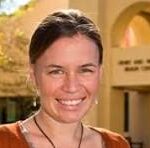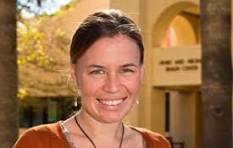At the Davenport Institute for Civic Engagement and Public Leadership at the Pepperdine University School of Public Policy, we’ve launched three blog sites relating to public participation in governance.
“Gov 2.0 Watch” will keep abreast of developments relating to the field of Government 2.0 – how Internet, social media, smart phone applications and other twenty-first century technology affect the relationship between citizens and their governments. “Big Society Watch” will follow British Prime Minister Dave Cameron’s Big Society Program, a national-level civic engagement effort seeking to enlist greater public participation in service delivery. The “inCommon” blog will provide a more general overview of what is going on in the world of civic engagement.
Rather than extensive editorializing on the issues, the Gov 2.0 Watch (<www.gov20watch.org.>) and Big Society Watch (<www.bigsocietywatch.org>) blogs will re-post commentary from experts, observers and engaged citizens from all perspectives. The purpose is to provide a “one stop,” comprehensive resource to encouraged informed deliberation about and evaluation of these programs.
Government 2.0 refers to the way that local, state and national governments are utilizing new media to inform and engage their citizens. Of particular interest to the Davenport Institute is whether this is changing the way citizens view their role in government (especially local government) by creating new activities for citizen involvement or whether they are simply reinforcing old ideas of citizens as customers – merely facilitating the delivery of government services.
David Cameron’s Big Society Program also has interesting implications for the Davenport Institute as it seeks to help solve public problems by promoting citizen participation in government. Cameron offers an ambitious agenda to de-centralize services to the local level of government and supplement government service provision with citizen engagement activities. The successes and failures of the Big Society program offer an example for civic engagement advocates in the United States as they consider the appropriate scope, level, and approach to civic engagement.





3 comments
Empedocles
The Davenport Institute for Civic Engagement and Public Leadership at the Pepperdine University School of Public Policy?
Your business cards must be a billboard.
Elias Crim
Excellent idea! All three blogs sound useful and timely. Speaking of the Big Society, one of its architects, Phillip Blond, will be in the States in late June–although only on the East Coast, I’m afraid (DC/Chicago/NYC this time around).
We’re laying groundwork for ResPublica America–so we should be contributing some major blog traffic your way, Ashley.
D.W. Sabin
The appropriate scope of the citizen in his or her polity is wide indeed. However, citizenship is only truly effective when the machinations of government are kept to a nettlesome minimum and spring out of the actions of the citizens rather than raining down from on cockeyed high. Cameron’s initiatives are compelling but the American Revolution covered that ground some time ago. Funny how we must now look on in wonder at what we once had.
Good luck at the Davenport Institute . When it drags this deranged government back into concentrating more on Broken Bow , Nebraska or the slums of Bridgeport , Ct. than it does the Hindu Kush, we might actually come back around the bend of foolishness.
Comments are closed.